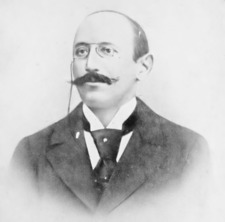With the near-certainty that the Israeli-Palestinian peace talks are headed south, the last-minute gambit to sweeten the pot and free convicted spy Jonathan Pollard seems to have only created more discord. The other night I was out with some very smart Israelis and American Jews, and Jonathan Pollard came up for some serious discussion. The Jonathan Pollard debacle is on everyone's radar.
On Friday The New York Times proved it can still sometimes do what it is supposed to: capture and print the zeitgeist. They put the Pollard question on the front page with the headline "Talk of Freeing a Spy for Israel Stirs Old Unease for U.S. Jews." The article went on to elucidate the various reactions to Pollard's divided loyalty and the larger question of Jewish-American priorities.
The 1884 Dreyfus Affair in France -- during which Alfred Dreyfus was accused of spying for the Germans -- has long interested me. Some 20 years ago I read Jean-Denis Bredin's well-researched and well-written book The Affair: The Case of Alfred Dreyfus. There have been several other notable books on the topic since. To this day the Dreyfus Affair stirs debate in France, home to the world's third-largest Jewish population.
Separated at birth?
What is so fascinating -- and, frankly, odd -- about the Pollard and Dreyfus affairs is the Jewish reaction in America and Israel to the admitted spy, Pollard, versus the reaction to the framed one, Dreyfus. The accusation against Dreyfus fit the timeless millennial pattern of persecution against Jews. Here was a secular, modern, upwardly mobile French Jew who, out of loyalty and gratitude to France, joined the army, only to be stopped in his tracks by a cabal of lying, disloyal French officers who would stop at nothing to destroy his career and threaten his life. It is for a reason that Diaspora Jews have been fearful of and angry at their host countries' discrimination against them. Since the fall of the Second Temple, Jews have always and everywhere lived on a knife's edge of repression. Europe, the default home of the Diaspora's Jews, devolved into a killing ground of biblical proportions.
The Dreyfus persecution put on display the anti-Semitism that Jews have come to know all too well. Interestingly, as with those who made it onto Yad Vashem's list of righteous gentiles, it took a gentile, Emile Zola, to save Dreyfus. The French Jews were not powerful enough to do it themselves.
Now to Pollard. Here is a traitor to America, a Navy intelligence analyst who was not framed, who, with conscious forethought, became a spy for Israel, an ally. Pollard made a choice. He accepted gifts and money. He was not a victim of an anti-Semitic cabal; he was the cabal. Unfettered in his access to America's top military secrets, Pollard used high-level clearance to pass secrets on to his Israeli handlers, giving them classified data that, according to the American military, was particularly important.
Yet the reaction by large parts of the Jewish leadership here and in Israel toward the Pollard case puts him on the same playing field as Dreyfus. There is a drumbeat of voices that act as if they believe that Pollard is a victim, that he was unfairly treated, or that his sentence is unduly harsh. Now the cry is that, because of his health, he should be freed, in the interest of humanity. In essence, the Jewish argument does not seem to differentiate between victim and perpetrator, between Dreyfus, the former, and Pollard, the latter. In both cases Jewish leaders' words and actions have implied that a grave injustice has been done, and that freeing the victim is the moral thing to do. In the case of Israel and Pollard, it has seemed to be a national goal.
Frankly, this is chutzpa of the highest order. It continues the "Jews always are victims" theme. It reinforces the belief that we can never be secure in the Diaspora. It is also just intellectually false.
I have several opinions on Pollard, and it may well be that he has paid enough of a price, having been jailed for decades. Retribution and vengeance has been extracted from him. However, rather than appealing for his early release and rationalizing his spying, American Jews and Israelis would be better off asking for clemency. American Jews are no more loyal or disloyal than the rest of the American populace, from which dozens of other spies have sold our national secrets. Those other spies are not victims of religious or ethnic persecution; they are what they are, and so is Pollard. Ascribing and justifying a higher cause to his actions has the inadvertent effect of perpetuating the misplaced idea that American Jews are first Jews and then Americans. That is exactly how the French were able to railroad the public into believing Dreyfus was a disloyal spy.
America's Jewish leadership would be wise to retool their "free Pollard" mission, and the Israeli leadership would be even wiser to stay out of this. America and its Jews have done very well by each other. We are not victims here, and Pollard is not Dreyfus.

